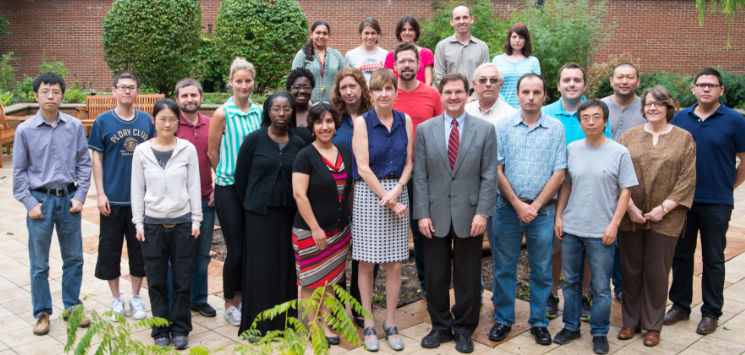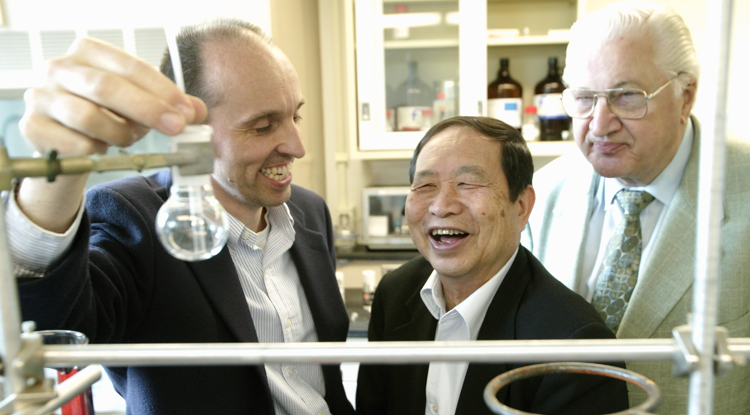Center History
Introduction
The UIC/NIH Center for Botanical Dietary Supplements Research was established in 1999 with support from the Office of Dietary Supplements and the Center for Complementary and Integrative Health of the National Institutes of Health (NIH).
25 years ago, Congress recognized increasing consumer use of alternative medicine.
The U.S. Congress responded to American consumer interest in alternative medicine and the need for research in this area by establishing the Office of Alternative Medicine (OAM) in 1991, which in 1998 became the National Center for Complementary and Alternative Medicine (NCCAM), now renamed the National Center for Complementary and Integrative Health (NCCIH). Recognizing the increasing use of dietary supplements by Americans, the U.S. Congress established in 1995 the Office of Dietary Supplements (ODS), which supports the development of botanical research centers in major research institutions across the United States. The UIC/NIH Botanical Center is currently one of three NIH-funded Research Botanical Centers.
UIC Botanical Center established in 1999 with a grant from ODS and NCCIH

The UIC / NIH Center for Botanical Dietary Supplements Research was established in 1999 with grant P50 AT000155 from NCCIH, supported with funds from the ODS, the Office of Research on Women’s Health (ORWH), and the National Institute of General Medical Sciences (NIGMS). This NIH grant P50 AT000155 has been funded during four cycles of the ODS/NCCIH Botanical Research Center Program, from 1999-2022. Since 2015, this program has been named as the Consortium for Advancing Research on Botanical and Other Natural Products (CARBON).
UIC Botanical Center established in 1999 with a grant from ODS and NCCIH

The UIC Botanical Center was originally directed by the late Dr. Norman R Farnsworth and co-directed by Dr. Richard B. van Breemen. Upon Dr. Farnsworth’s retirement in 2011, Dr. van Breemen became the Director, and Dr. Guido F. Pauli was named Co-Director. Following Dr. van Breemen taking on the role of Director of the Linus Pauling Institute, Dr. Pauli was named the Director.
The Center’s structure consists of three inter-connected projects and four supporting cores, each led by the Center’s principals: Guido Pauli and Shao-Nong Chen (Project 1 and Cores A and B), Birgit Dietz and Martin Bosland (Project 2 and Core C; previously the late Judy L. Bolton), as well as Richard van Breemen and Dejan Nikolic (Project 3 and Core D). Graduate students, postdoctoral fellows and technical specialists complete the Center’s personnel roster. Research aims are developed by Center principals and guided by the Center’s External Advisory Committee, composed of experts in the fields of pharmacognosy, toxicology, women’s health, biostatistics, and complementary and alternative medicine.